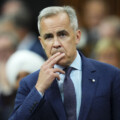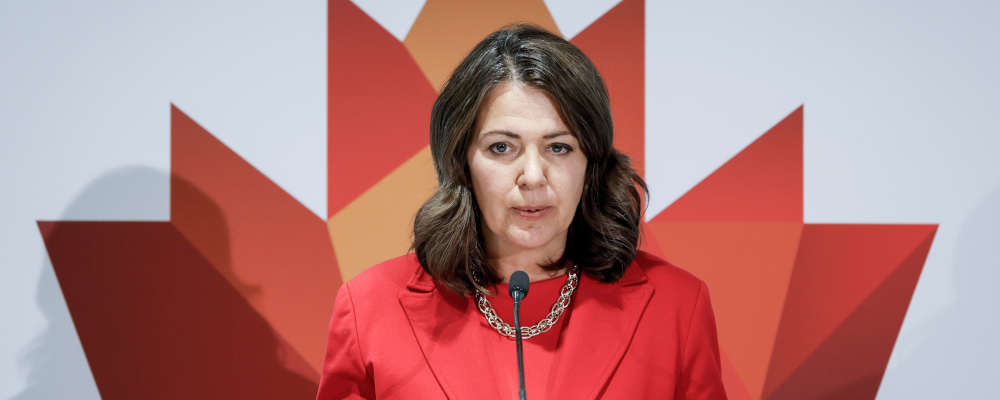In 2019, then-premier Jason Kenney launched the “Fair Deal Panel” to investigate Alberta’s place within the Canadian federation, with particular emphasis on the balance between money sent to Ottawa by Albertans versus what was received in return. There was a genuine sense that the federation had become unbalanced, with Albertans giving far more than they received.
One of the panel’s recommendations was for Alberta to withdraw from the Canada Pension Plan (CPP) and establish its own independent provincial plan. Based on this recommendation, the Smith government contracted a report to evaluate the costs, benefits, risks, and considerations of withdrawing from the CPP.
At the very least, Alberta’s forward-looking evaluation of the CPP and the potential for improvements should provide an opportunity for a dialogue on the CPP in all provinces (except Quebec, which already has its own standalone provincial program). Unfortunately, some prominent pundits and analysts prefer to obfuscate and muddy the water of discussion.
Consider a recent column in the Globe and Mail where the first misleading statement appears in the second paragraph when the author claims an Alberta-based pension would provide “capital for Albertan politicians’ pet projects,” the inference being that the guiding principle of the pension plan would be money for politicians not maximizing risk-adjusted returns for Albertans. Yet discussions thus far indicate that any Alberta pension would be guided by similar principles as the CPP, namely to maximize returns for participants.
The next puzzling claim appears in the very next paragraph, which concerns the amount of assets an Alberta pension plan would be eligible to withdraw from the CPP fund. According to the author, Alberta wants to take more than half the CPP’s funds despite being “responsible for only 16 percent of contributions.” But in fact, specific legislation governs the withdrawal of any province and the asset distribution calculation, which essentially focuses on the amount paid into the fund by Albertans plus investment returns (net) minus the benefits paid out of the fund and administrative costs. The Smith government report clearly explains that this division of assets is based on that legislation (Section 113(2) of the CPP Act).
The columnist also skips over the main issue in the government’s report, which is that Albertans pay significantly more into the CPP than retirees receive because of the province’s comparatively younger population (i.e. more workers vs. retirees) and higher average incomes (i.e. higher level of premiums paid into the fund). The report concluded that Alberta workers could receive the same benefit from an Alberta pension plan as they do from the CPP but with a contribution rate (i.e. tax) at 5.91 percent instead of the CPP’s current base contribution rate of 9.9 percent. That’s savings to each Alberta worker of roughly $2,850 annually.
The author then transitions to the “bigger is better” argument, asserting that “scale allows a larger fund to lower costs” without citing any evidence. Yet in reality, despite its massive size, the CPP is not a low-cost pension plan. According to an analysis by Philip Cross, former chief analyst at Statistics Canada, the CPP’s cost at 1.07 percent of assets was higher than the other analyzed pension plans, which ranged from 0.34 percent at Healthcare of Ontario Pension Plan (HOOPP) to 1.02 percent at the Ontario Public Service Employees Union Pension Trust (OPTrust). The Globe columnist also fails to recognize that the Smith government’s report outlines an option to retain the Canada Pension Plan Investment Board (CPPIB) as the investment manager if Alberta moves to a provincial pension plan.

Moreover, the author misstates the comparative entity in the province—the Alberta Investment Management Corp (AIMCo). Yes, AIMCo has posted lower returns than the CPPIB but many of the pensions managed by AIMCo come with constraints. For instance, if a provincial pension plan imposes restrictions such as ESG investments or minimum corporate social responsibility on the fund, AIMCo is required to adjust its investments. The CPPIB, on the other hand, is still largely driven by the goal of maximizing returns (adjusting for risk).
A final mistake is the author’s assertion that Alberta’s population will look the same as the rest of the country in 30 years. But the government’s report, and most observers, agree that this is a highly conservative assumption. The more likely outcome is that Alberta will continue to have a younger population with higher incomes than the rest of Canada.
Canadians should thoughtfully engage in conversation about the CPP and potential reforms. For that to happen, Canadians, including pundits, must be aware of the facts.
Recommended for You

‘Another round of trying to pull capital from Canada’: The Roundtable on Trump’s latest tariff salvo

‘We knew something was coming’: Joseph Steinberg on how Trump is ramping up his latest tariff threats against Canada

Rudyard Griffiths and Sean Speer: Canada’s high-stakes standoff with Trump

Carney’s next budget will be built on a shaky fiscal foundation



